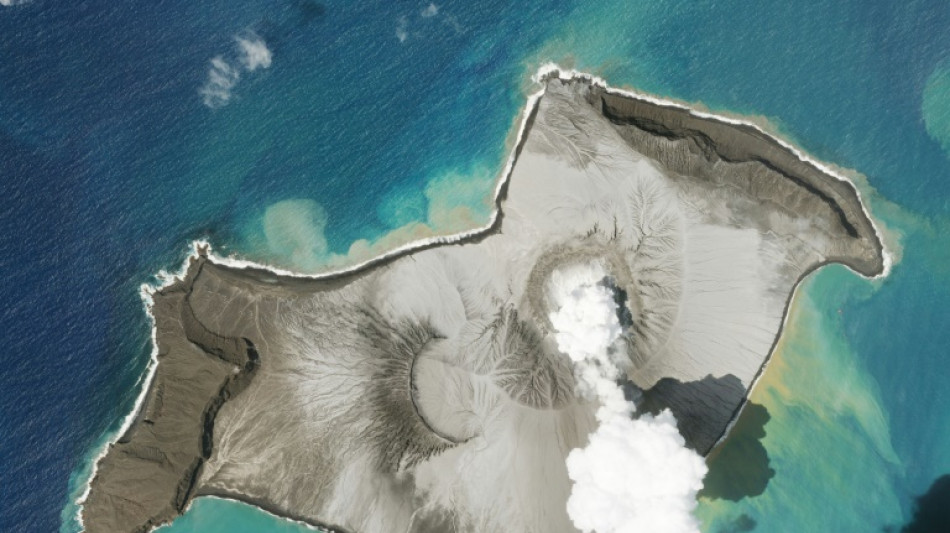
-
 Trump tells Cuba to 'make a deal, before it is too late'
Trump tells Cuba to 'make a deal, before it is too late'
-
Toulon win Munster thriller as Quins progress in Champions Cup

-
 NHL players will complete at Olympics, says international ice hockey chief
NHL players will complete at Olympics, says international ice hockey chief
-
Leeds rally to avoid FA Cup shock at Derby

-
 Rassat sweeps to slalom victory to take World cup lead
Rassat sweeps to slalom victory to take World cup lead
-
Liverpool's Bradley out for the season with 'significant' knee injury

-
 Syria govt forces take control of Aleppo's Kurdish neighbourhoods
Syria govt forces take control of Aleppo's Kurdish neighbourhoods
-
Comeback kid Hurkacz inspires Poland to first United Cup title

-
 Kyiv shivers without heat, but battles on
Kyiv shivers without heat, but battles on
-
Salah and fellow stars aim to deny Morocco as AFCON reaches semi-final stage

-
 Mitchell lifts New Zealand to 300-8 in ODI opener against India
Mitchell lifts New Zealand to 300-8 in ODI opener against India
-
Iran protest death toll rises as alarm grows over crackdown 'massacre'

-
 Malaysia suspends access to Musk's Grok AI: regulator
Malaysia suspends access to Musk's Grok AI: regulator
-
Venezuelans await release of more political prisoners, Maduro 'doing well'

-
 Kunlavut seals Malaysia Open title after injured Shi retires
Kunlavut seals Malaysia Open title after injured Shi retires
-
Medvedev warms up in style for Australian Open with Brisbane win

-
 Bublik powers into top 10 ahead of Australian Open after Hong Kong win
Bublik powers into top 10 ahead of Australian Open after Hong Kong win
-
Sabalenka fires Australian Open warning with Brisbane domination

-
 In Gaza hospital, patients cling to MSF as Israel orders it out
In Gaza hospital, patients cling to MSF as Israel orders it out
-
New protests hit Iran as alarm grows over crackdown 'massacre'

-
 Svitolina powers to Auckland title in Australian Open warm-up
Svitolina powers to Auckland title in Australian Open warm-up
-
Keys draws on happy Adelaide memories before Australian Open defence

-
 Scores of homes razed, one dead in Australian bushfires
Scores of homes razed, one dead in Australian bushfires
-
Ugandan opposition turns national flag into protest symbol

-
 Bears banish Packers, Rams survive Panthers playoff scare
Bears banish Packers, Rams survive Panthers playoff scare
-
'Quad God' Malinin warms up for Olympics with US skating crown

-
 India eyes new markets with US trade deal limbo
India eyes new markets with US trade deal limbo
-
Syria's Kurdish fighters agree to leave Aleppo after deadly clashes

-
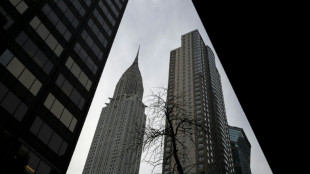 New York's Chrysler Building, an art deco jewel, seeks new owner
New York's Chrysler Building, an art deco jewel, seeks new owner
-
AI toys look for bright side after troubled start

-
 AI pendants back in vogue at tech show after early setback
AI pendants back in vogue at tech show after early setback
-
Grateful Dead co-founder and guitarist Bob Weir dies aged 78

-
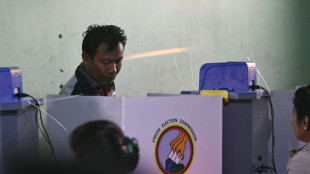 Myanmar votes in second phase of junta-run election
Myanmar votes in second phase of junta-run election
-
'One Battle After Another' heads into Golden Globes as favorite

-
 Rams survive Panthers scare to advance in NFL playoffs
Rams survive Panthers scare to advance in NFL playoffs
-
Rallies across US after woman shot and killed by immigration agent
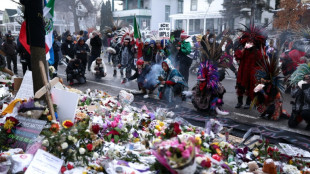
-
 Egypt dump out holders Ivory Coast as Nigeria set up AFCON semi with Morocco
Egypt dump out holders Ivory Coast as Nigeria set up AFCON semi with Morocco
-
Rosenior salutes 'outstanding' start to Chelsea reign

-
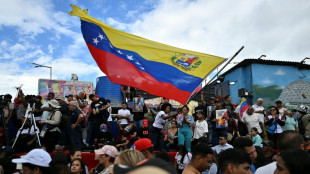 Maduro loyalists stage modest rally as Venezuelan govt courts US
Maduro loyalists stage modest rally as Venezuelan govt courts US
-
Byrne late penalty fires Leinster into Champions Cup last 16 after 'ding-dong' battle

-
 Rosenior makes flying start as Chelsea rout Charlton in FA Cup
Rosenior makes flying start as Chelsea rout Charlton in FA Cup
-
Rallies across US against shooting of woman by immigration agent
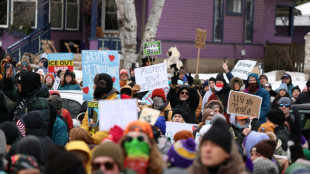
-
 Salah closer to AFCON glory as Egypt dethrone champions Ivory Coast
Salah closer to AFCON glory as Egypt dethrone champions Ivory Coast
-
O'Neil ends 'crazy three days' with Strasbourg cup canter

-
 Mitchell leads Cavs over T-Wolves
Mitchell leads Cavs over T-Wolves
-
O'Neil ends 'crazy few days' with Strasbourg cup canter

-
 Argentina wildfire burns over 5,500 hectares: governor
Argentina wildfire burns over 5,500 hectares: governor
-
Byrne late penalty fires Leinster into Champions Cup last 16

-
 Roma beat Sassuolo to close in on Serie A leaders Inter
Roma beat Sassuolo to close in on Serie A leaders Inter
-
Villa's FA Cup win at Spurs leaves Frank on the brink


Shock waves, landslides may have caused 'rare' volcano tsunami: experts
A rare volcano-triggered tsunami sparked by the eruption of Hunga Tonga-Hunga Ha'apai in Tonga could have been caused by shock waves or shifting underwater land, experts said Monday.
"A volcanic-source tsunami event is rare but not unprecedented," a post on the website for New Zealand's geological hazard monitoring system GNS said Monday.
GNS Tsunami Duty Officer Jonathan Hanson said it probably occurred in part thanks to a previous eruption of the same volcano one day earlier.
"It is likely that the earlier 14 January eruption blew away part of the volcano above water, so water flowed into the extremely hot vent," wrote Hanson.
"This meant that the Saturday evening eruption initially occurred underwater and exploded through the ocean, causing a widespread tsunami," he said.
Two days after Hunga Tonga-Hunga Ha'apai's massive explosion, the nation's 100,000 population remained virtually cut off from the rest of the world with crippled communications and stalled emergency relief efforts.
The volcano cloaked Tonga in a film of ash, sent a column of ash and gas 20 kilometres into the air and shock waves that could be seen from space rippling across the planet.
It also triggered a Pacific-wide tsunami whose waves were strong enough to drown two women in Peru more than 10,000 kilometres (6,000 miles) away.
- Ring of Fire -
Hunga Tonga-Hunga Ha'apai is located in the so-called Ring of Fire, where a rift between shifting tectonic plates results in increased seismic activity.
In a volcanic eruption, magma rising to the surface of the Earth's crust causes volcanic gases to be released that then push their way out from underground, creating pressure.
When the gases reach water it expands into water vapour, creating even more pressure.
Volcano expert Ray Cas of Monash University in Australia said he suspected the intensity of the explosion suggested a large amount of gas had risen into the vent.
"The tsunamis could have been triggered by shock waves propagating through water," he commented on the Australian Science Media Centre.
"But more likely largely by a landslide on the submarine part of the volcanic edifice triggered by the explosive eruption."
Yet another possibility is that the volcano's special location just beneath the surface of the ocean could have made its effects worse.
The volcano's 1,800 metres of height is almost entirely submerged beneath the surface of the ocean, the edge of its crater forming an uninhabited island.
"When eruptions happen deep in the ocean, the water tends to muffle the activity. When it happens in the air, the risks are concentrated to the immediate area," Paris-based geologist Raphael Grandin told AFP.
"But when it's just under the surface, that's when the tsunami risk is greatest," he said.
- Exceptionally loud eruption -
People are reported to have heard Hunga Tonga-Hunga Ha'apai's eruption as far away as Alaska, 9,000 kilometres from the source, which Grandin said is "exceptional".
"As far as I know the last explosion that was audible at that distance was caused by the Krakatoa volcano in Indonesia in 1883 -- it killed 36,000 people," he said.
Experts also said that while the volcano could experience further activity, past research shows an eruption of Saturday's scale probably only occurs every 1,000 years.
Scientists who commented on the phenomenon said they would know more about how it took place once communication with the Pacific nation of some 170 islands could be restored.
E.AbuRizq--SF-PST



